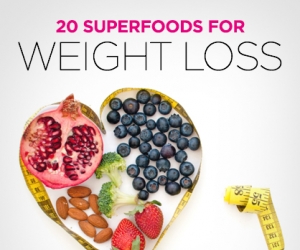5 Top Heart-Healthy Foods
Try these healthy snack alternatives
Yogurt, berries and nuts are packed with heart-healthy nutrients that help protect your cardiovascular system. Try one of these five foods next time the cravings hit and you'll satisfy your hunger and help your heart.
Eating for a healthy heart means consuming plenty of fruits and vegetables daily, paying attention to fiber, eating fish at least twice a week and limiting unhealthy fats and salt. And although no single food is a cure-all, certain foods have been shown to improve your heart health. If you eat right, you can lower your future risk of heart disease.


Yogurt
Research shows yogurt's probiotics may protect against gum disease. This is important because if left unchecked, gum disease may elevate a person’s risk for heart disease.
Researchers from Japan analyzed dietary intakes from nearly 1,000 adults and found those who consumed the highest levels of yogurt and yogurt-type drinks had the healthiest gums. This works because yogurt's probiotics may help to counter growth of the “unfriendly” bacteria in the mouth. Probiotics are live active cultures used to ferment foods, such as yogurt and kefir (fermented milk), and studies suggest that they may improve digestion and boost immunity too.

Fruit
Fresh fruit such as apples and berries are excellent for your health.
Apples are associated with a lower risk of death from both coronary heart disease and cardiovascular disease as published in the Iowa Women’s Health Study, which has been tracking 34,000-plus women for nearly 20 years. Finnish researchers studying dietary data collected over 28 years from 9,208 men and women found that frequent apple eaters had the lowest risk of suffering strokes compared with nonapple eaters.
Berries also get top marks. Eating just under a cup of mixed berries daily for eight weeks was associated with increased levels of “good” HDL cholesterol and lowered blood pressure, two positives when it comes to heart health, according to a study of 72 middle-age people published recently in the American Journal of Clinical Nutrition.

Chocolate
Yes, that's right. Chocolate. Researchers have discovered that eating moderate amounts of flavanol-rich dark chocolate has a blood-thinning effect, which can benefit cardiovascular health, and it may also boost the immune system by reducing inflammation. The Kuna people of the San Blas islands, off the coast of Panama, have a rate of heart disease that is nine times less than that of mainland Panamanians. The reason? The Kuna drink plenty of a beverage made with generous proportions of cocoa, which is unusually rich in flavanols that help preserve the healthy function of blood vessels. Maintaining youthful blood vessels lowers risk of high blood pressure, type 2 diabetes, kidney disease and dementia.

Nuts
Any type of nut is full of vitamins, minerals, heart-healthy monounsaturated fats and low levels of saturated fats. Research suggests that people who eat nuts such as walnuts, pecans, almonds, hazelnuts, pistachios, pine nuts and peanuts two to four days or more per week have a lower incidence of heart disease than people who eat them less often.

Beans
Try hummus as an easy way to get your daily allotment of fiber, since it's made from garbanzo beans.
A study published in the Journal of Nutrition suggests consuming 1⁄2 cup of cooked beans daily might lower cholesterol. Soluble fiber is a key reason why.


